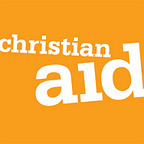Bolivia’s women politicians in the firing line
In March 2012, the body of Juana Quispe was found near a river. Juana was a local councillor in Ancoraimes, a small town in La Paz Department in Bolivia. Her murder increased the pressure on the government to approve a law that would protect the increasing number of women who had reached public office in local and national positions in Government and who were subjected to violence and intimidation.
Juana Quispe was one of many women elected after the passing of the Law of Electoral Regime in 2010. This law promotes parity in political participation of women and men at all levels of government, and it enacts provisions in the new Bolivian Constitution, requiring gender parity in the National Assembly and national cabinet members.
The introduction of this law immediately resulted in a greater presence of women on the ballots and in local governments. After the 2015 elections, women occupied 47% of positions in municipal councils across Bolivia.
However, these women met challenges that underscored how their empowerment was more in form rather than substance. They received negative reactions from men to their presence on municipal councils. Their proposals and actions were met with disdain and ridicule, if not outright hostility.
Even before these laws came into effect, elected women representatives already suffered from discrimination and sexism, psychological abuse, as well as overt physical violence when performing their roles.
Many of these attacks were directed at indigenous women working on the National Assembly and other regional governments.
Historically, women from indigenous communities were looked down upon and suffered from routine discrimination.
Shortcomings in the law
In response, the government passed Law 243 Against Political Harassment and Political Violence Towards Women in 2012. The law was meant to protect ‘all women candidates, elected and designated officials or those exercising a political or public role’. However, many civil society organisations (CSOs) and female authorities have criticised its shortfalls. It does not include protection for women who participate in CSOs, including grassroots movements or indigenous, communal organisations.
Many public servants are not aware of the law or what it entails and, in many cases, complaints are processed and decided by officials who could themselves be the harasser. Most worryingly, women who want to denounce harassment or violence need to resign first to be able to make the denunciation.
Our response
In response to the concerns by Christian Aid partners Fundación Machaqa Amawta and UNITAS, we are supporting a joint initiative in order to tackle political harassment and violence against women. Christian Aid’s partners are now working together with various civil society organisations to promote the effective implementation of this law and its regulation.
Recently, Christian Aid released a paper that illustrates the main obstacles and achievements to women’s involvement in politics in Bolivia. It discusses a unique experience in Bolivia, where progressive laws on women empowerment were passed, but produced an inadvertent consequence — the bullying of women who assumed seats of power in a still predominantly macho society.
The report provides food for thought on how changing social norms remains much more difficult, and ought to remain in programming and policy work. It showcases the prevalence of political violence against female leaders, but also shows their strength and will to continue despite many drawbacks and barriers.
Find out more
- Read the full report: Gender and politics in Bolivia: violent repercussions
- Christian Aid in Bolivia
